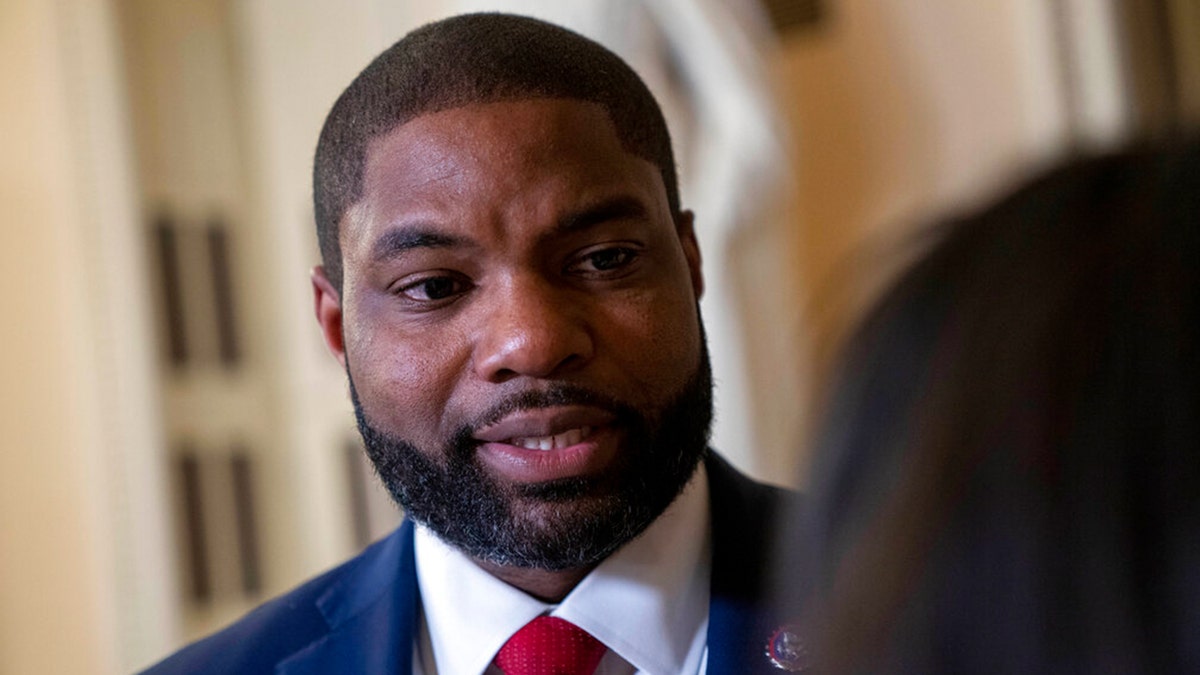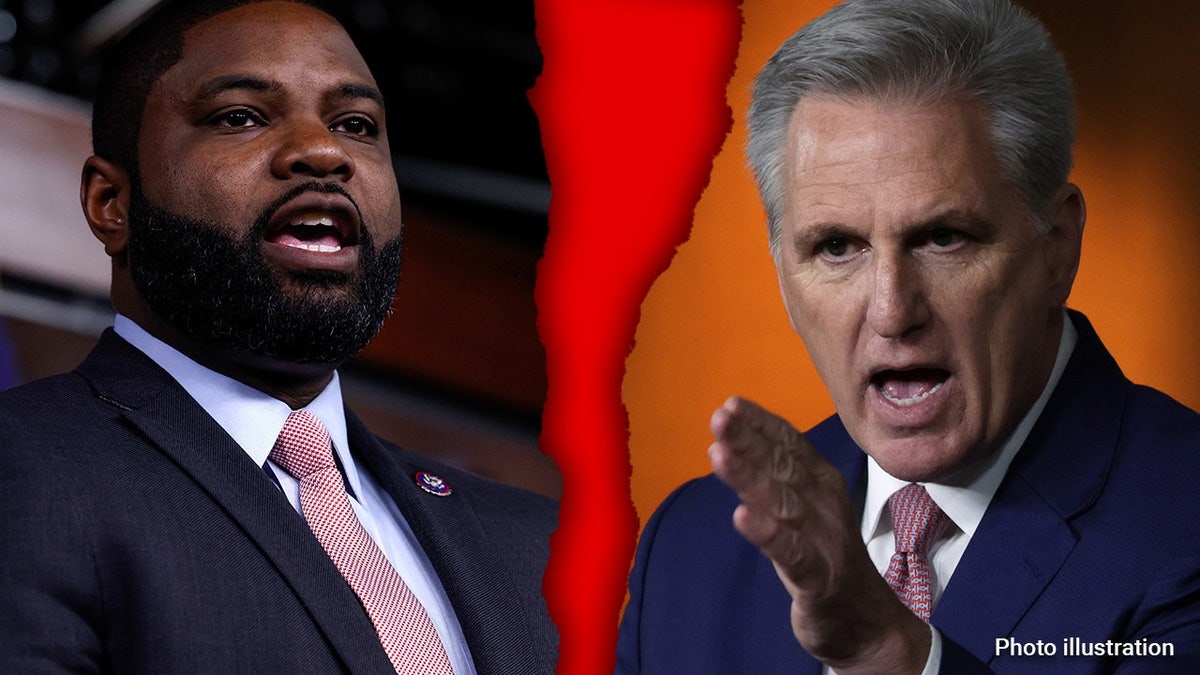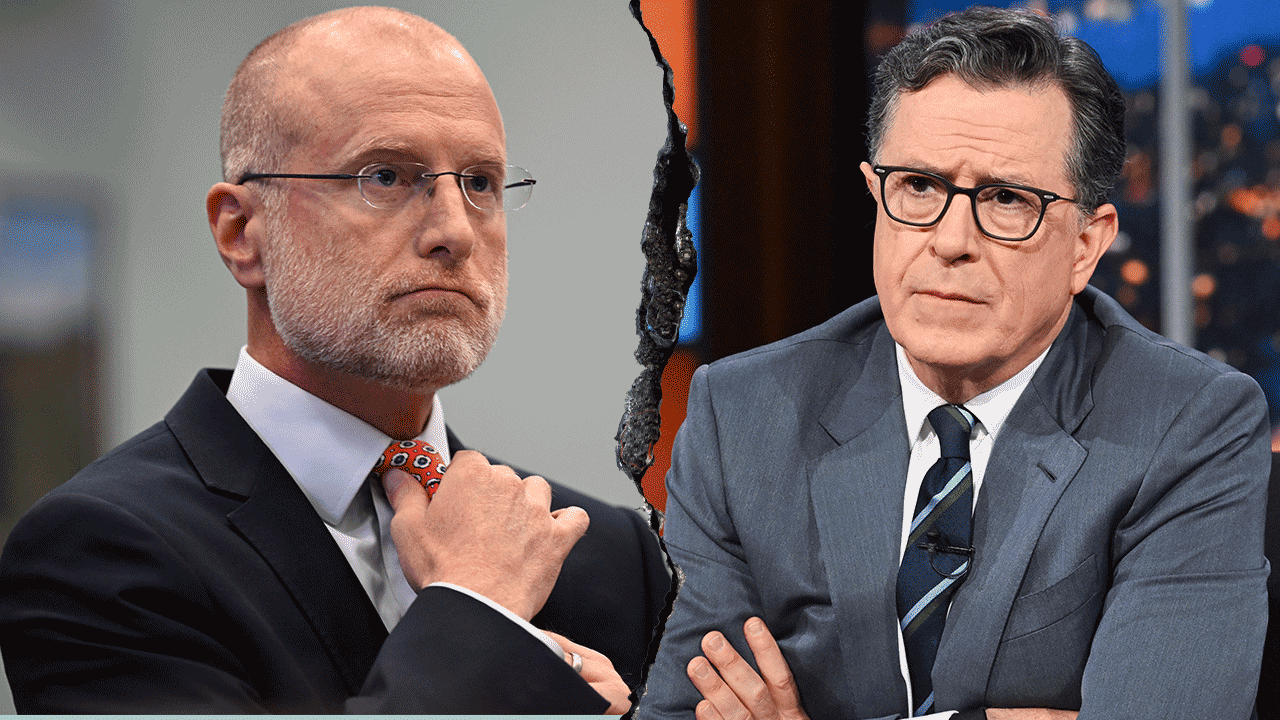Rep. Byron Donalds defends voting record on "The ReidOut"
Florida Rep. Byron Donalds appeared as a guest on MSNBC's "The ReidOut" after host Joy Reid made controversial statements on his nomination for House Speaker.
MSNBC’s Joy Reid sparred with Florida Rep. Byron Donalds for what she considered "unfair" accusations against her when the Republican lawmaker appeared on her show Tuesday.
Reid mentioned the accusations before questioning Donalds on his voting record.
"Last question, we’re out of time. I’m going to go through a few of your voting record items because you made some statements about me, what I have said, and saying I have tried to accuse you of being less Black than other folks which I think is an unfair statement, but that’s fine," Reid said.
Prior to the show, Reid criticized Donalds after the congressman was nominated for speaker of the House in opposition to Rep. Kevin McCarthy, R-Calif. Although he was the second Black man to be nominated for the position, Reid referred to the act as a "troll" move on Wednesday.

Rep. Byron Donalds appeared as a guest on MSNBC's "The ReidOut." (MSNBC)
JOY REID DISMISSES BYRON DONALDS NOMINATION AS ‘TROLL’ MOVE THAT HE WAS WILLING TO ‘GO ALONG WITH’
"Their plan is to just keep switching from alternative to alternative. They first tried to go with Jim Jordan, but Jim Jordan is in with McCarthy. And today they did this sort of, not in a surprising move, went with a Black guy with Chip Roy standing up and saying all sorts of things about Martin Luther King quotes and some of them were talking Frederick Douglass. This to me felt like a full troll and this guy was willing to go along with it," Reid said.
After this comment received backlash, Reid doubled down on Thursday, suggesting that Donalds was a Black prop for the GOP.
"Never mind that Donalds supports voter suppression efforts, which disproportionately hurt Black Americans, but since when do details matter? Any Black guy will do, especially one that is very nice, big in stature, and goes along with the program," Reid said.
Throughout the rest of Tuesday’s show, Reid attacked Donalds’ voting record by implying that he negatively impacted African Americans.

Rep. Byron Donalds is interviewed on his way to the House chamber, Friday, Jan. 6, 2023, (AP Photo/Jacquelyn Martin)
MSNBC’S JOY REID RANTS AGAINST BYRON DONALDS AS PROP FOR GOP: ‘ANY BLACK GUY WILL DO’
"You voted to reject the Arizona and Pennsylvania electors on Jan. 6. Donald Trump himself has implied that the reason that Pennsylvania was illegitimate is because of Philadelphia. That’s a statement about African American voters," she said.
"That’s not a statement about African Americans," Donalds replied.
Reid continued, "You don’t believe that Donald Trump’s rhetoric led to the storming of the Capitol, even though we just had the Jan. 6 commission that said it did. You said that, OK, you questioned the election itself. You voted against impeachment. You voted against creating an independent commission for the Jan. 6 account. On voting laws, you voted, you defend voting laws that said getting rid of ballot harvesting is a good thing, so you defended the Florida voting laws."
"Florida voting laws are the best election laws in the country. Go ask Arizona. Go ask California. Go ask New York. We do it the best," Donalds responded.
Earlier in the segment, Reid suggested that his nomination against Democratic leader Rep. Hakeem Jeffries, of New York, was done as a "diversity statement" due to the fact that the Democratic Party is just "more diverse."
Donalds responded, "The reality is that a lot of members actually do believe in my ability to lead. They do. Am I to be despised for my youth because I served one term? My members know I have the ability to engage other members through the conference, but it’s even bigger than that. Listen, we were at an impasse last week in our speakership elections. We got that done. Kevin McCarthy is now speaker of the House. At the same time, I was working with members on both sides of our conference to make sure that we can get the job done, and we did. That’s the only thing that matters."
The segment ended with a discussion on Donalds’ criticism of critical race theory.

Byron Donalds and Kevin McCarthy were nominated to be speaker of the House. (Fox News)
CLICK HERE TO GET THE FOX NEWS APP
"Critical race theory comes from critical theory. And essentially what it does at the graduate level, it talks about the implications of racial policies in the past in American history, their impact on society today. Hold on, the issue with critical race theory, if you distill it down to K-12 education is you do not have the ability to have a detailed conversation of critical race theory at the graduate level. Here’s my question. If it seeps down to K-12 education, is it stuff that students aren’t prepared to dealing with? Shouldn’t students just be learning about reading, writing and arithmetic?" Donalds asked.
"You don’t believe that students should learn about the racial history of the country? Because critical race theory is not taught in a single K-12 school. It's a legal theory in some law schools," Reid interrupted. "Critical race theory is not taught in schools and learning about racial history would actually be good for you and the country."









































